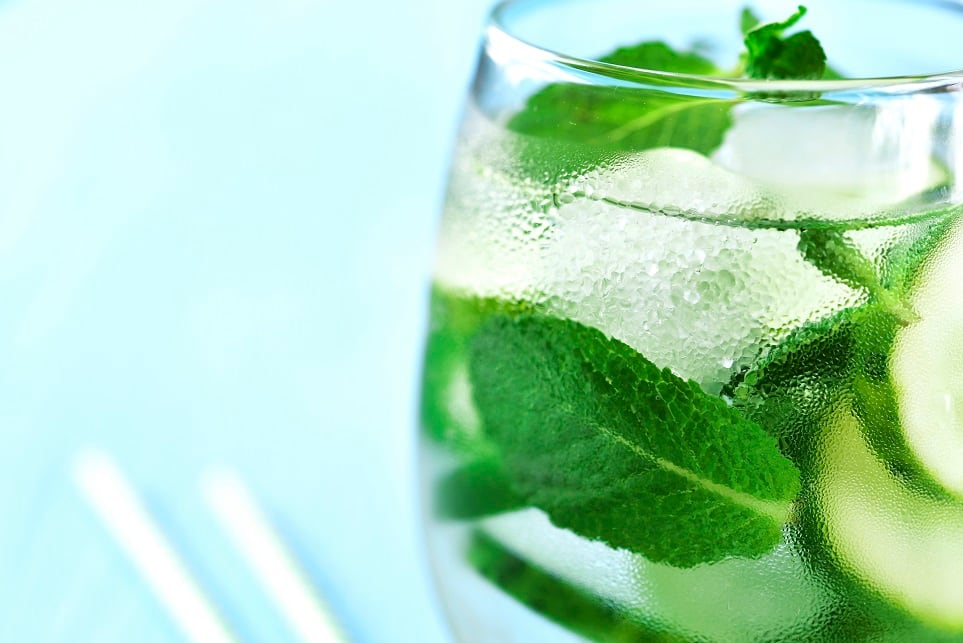In a study published in Environment International, scientists say using peas instead of wheat for the neutral alcohol base would reduce the use of nitrogen fertilisers, as well as potentially create a carbon neutral spirit by using by-products as animal feed to offset the environmental impact of the soybean industry.
The researchers have already trialled producing gin from pea starch at Arbikie Distillery, a farm-to-bottle distillery on the east coast of Scotland. However, the principles could be used for many other alcoholic beverages including whisky, beer and vodka, as well as industrial bioethanol (biofuel) – “implying high scalability and impact from this innovative use of legume starch,” say the researchers.
No impact on gin flavour
Gin is a high-value product which is growing strongly thanks to worldwide demand. The gin production process involved producing a neutral spirit (through milling, mashing, fermentation and distilling) prior to redistilling with botanicals for its flavour.
Peas could be used to create the neutral spirit. "Following two distillations plus an infusion with botanical ingredients including juniper and coriander, the final gin retains the same sumptuous, aromatic flavour as if made from cereal grain," said Kirsty Black, manager of Arbikie Distillery and co-author of the study.
A large measure (50ml) of conventional wheat-based gin has greenhouse gas emissions of around 160g CO2 equivalent – around the same as driving 1km – due to the impact of growing wheat, producing enzymes, heat, electricity, packaging and transportation.
Researchers undertook a life cycle assessment to compare the environmental footprint of 1 liter of packaged gin produced from 1.43kg of wheat grain, or from 2.42 kg of peas via fermentation and distillation into neutral spirit.
The environmental footprint of pea-gin was smaller than for wheat-gin across 12 of 14 environmental categories considered – in particular with a 12% reduction in global warming impact and a 68% reduction in terrestrial eutrophication footprint.
One of the key advantages of using peas instead of wheat is the crop’s nitrogen fixing properties. Peas have specialised bacteria in their roots and are able to convert nitrogen from the atmosphere into biological fertiliser – thus removing the need for polluting synthetic nitrogen fertilisers. Cereal crops, however, depend on synthetic nitrogen fertilisers, which can result in nitrogen leaching into water courses and polluting the environment.
The disadvantage of pea-gin production, however, was found in greater direct land occupation for pea production (112% for pea-gin over wheat-gin).
Pea gin by-product could tackle soybean animal feed deforestation
A wider environmental benefit of pea gin, however, could be found by effectively using by-products as animal feed.
Europe is dependent on imports to meet 70% of protein-feed fed to pigs, poultry, cattle and fish – and in particular soybean from Latin America.
However, soybean cultivation is driving environmental damage such as the destruction of rainforests. This creates strong interest in finding alternatives to soy-based feed to improve the sustainability of the European livestock and aquaculture systems.
Peas hulls and pea gin co-products, therefore, could provide protein-rich animal feed sourced closer to home for the industry.
The co-products from the production of 1l of pea gin could substitute up to 0.66kg of soybean animal feed (compared to 0.33kg from wheat gin).
When calculating the saved greenhouse gas emissions from soybean cultivation, deforestation, processing and transport, researchers say the environmental footprint saving can exceed the greenhouse gases produced in making gin – effectively making the spirit carbon neutral.
“There is great potential to scale the use of legume starches in production of alcoholic beverages and biofuels, reducing dependence on Latin American soybean associated with deforestation and offering considerable global mitigation potential in terms of climate change and nutrient leakage,” conclude researchers in the study.




